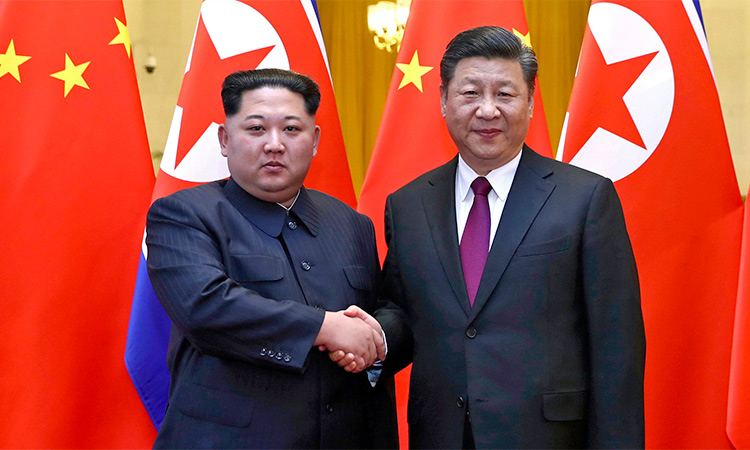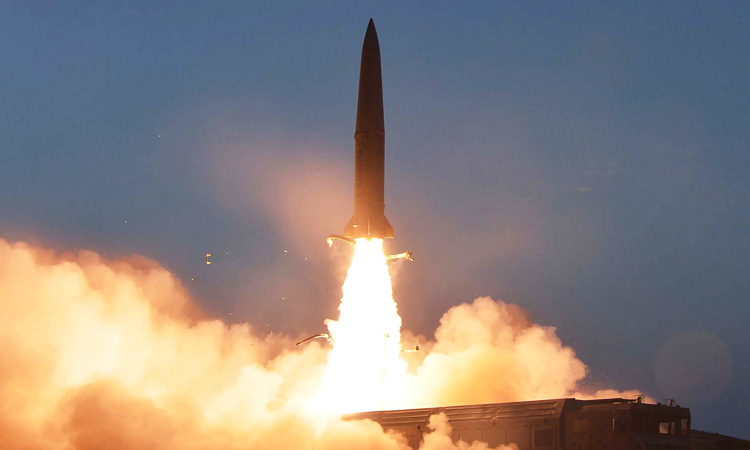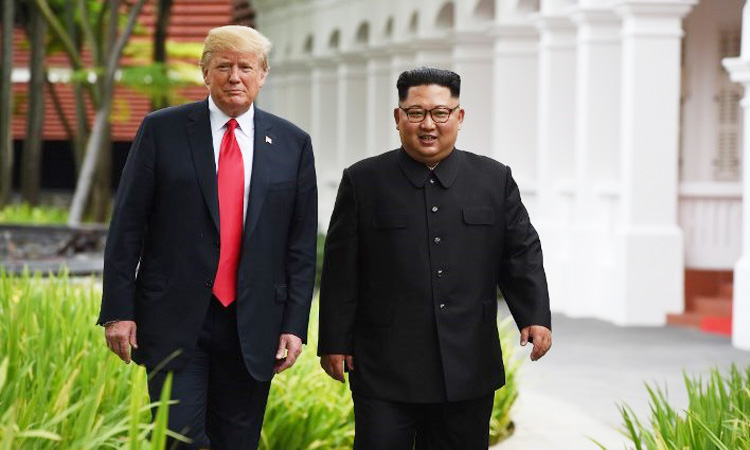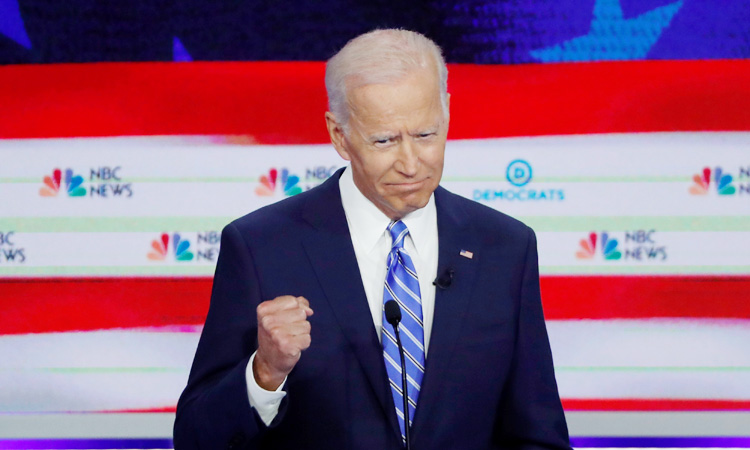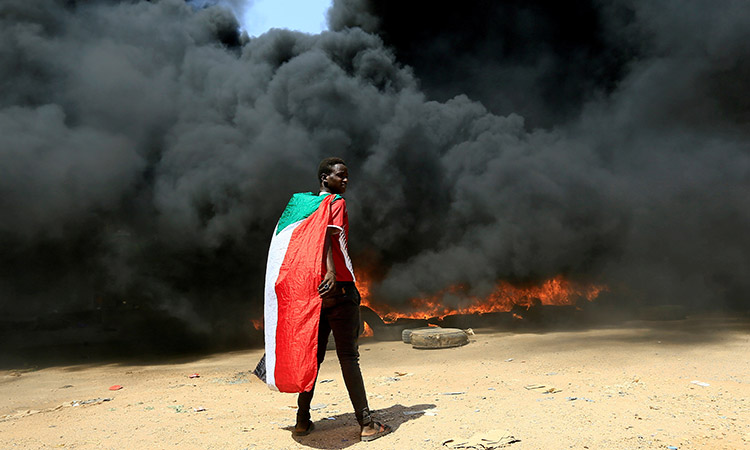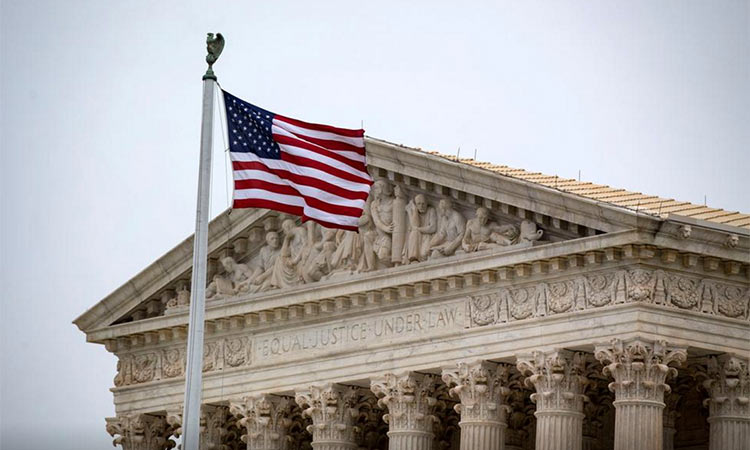Firing missiles won’t get Pyongyang anywhere
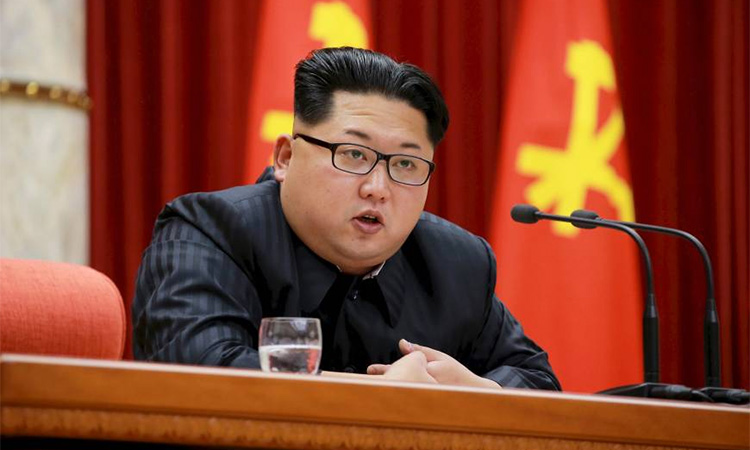
Kim Jong Un
Pyongyang should realise that it is heading in the wrong direction if its intention is to apply pressure tactics on the world community.
The latest firings follow launches on July 25, North Korea’s first missile tests since its leader Kim Jong Un and US President Donald Trump met on June 30 and agreed to revive stalled negotiations.
The series of missile tests raises the stakes for the US and South Korean diplomats criss-crossing the region this week in the hope of restarting talks aimed at persuading Pyongyang to give up its nuclear weapons and ballistic missile programmes.
It is true that Pyongyang has for quite some time been expressing anger over planned US-South Korean military drills, but firing missiles cannot be an answer to such a grievance.
Last Thursday, after North Korea fired two short-range ballistic missiles, its state media said those tests were supervised by leader Kim Jong Un and were designed to deliver a “solemn warning” to South Korea over its purchase of high-tech US-made fighter jets and the planned military drills.
North Korea’s foreign ministry earlier even accused Washington of breaking a promise by holding military exercises with South Korea.
Even though North Korea is banned by the UN from using ballistic technology in any weapons launches, it’s unlikely that the nation, already under 11 rounds of UN sanctions, will be hit with more punitive measures. It’s because past sanctions were imposed only when the North conducted long-range ballistic launches.
The crippling sanctions — imposed earlier by the United Nations and countries such as the US — include attempt to halt the trade in luxury goods as a way of targeting the country’s elite.
North Korea’s exports to China, its main market, dropped nearly 90 per cent last year, according to data from Beijing, and a recent report by the Korea Development Institute said sanctions had put the country on a path for economic crisis.
Earlier last week, Kim had also visited a newly-built submarine and expressed his satisfaction with its weapons system. North Korea claimed its deployment was “near at hand.”
As experts point out, North Korea acquiring the ability to launch missiles from submarines would be an alarming development because such missiles are harder to detect in advance.
What is intriguing is that despite a recent lack of progress in nuclear diplomacy, both Trump and Kim have said they have maintained good relations with each other.
After last Thursday’s missile launches, Trump even downplayed the significance of the tests, saying that “short-range” was the most important detail. He said North Korea fired “standard” missiles that many countries possess.
North Korea has defied years of isolation and sanctions to develop its arsenal and has not given up any of its weapons, while proving itself adept at dragging out discussions.
The only development is that after entering talks with Washington, North Korea has suspended nuclear and long-range missile tests, and Trump insists that is proof his North Korea policy is working well and has eased the danger of a war with the North.
However, looking at the continuing provocative actions by Pyongyang, it is not easy to erase persisting doubts about the future of the negotiations and North’s willingness to give up its stockpile of nuclear weapons.
